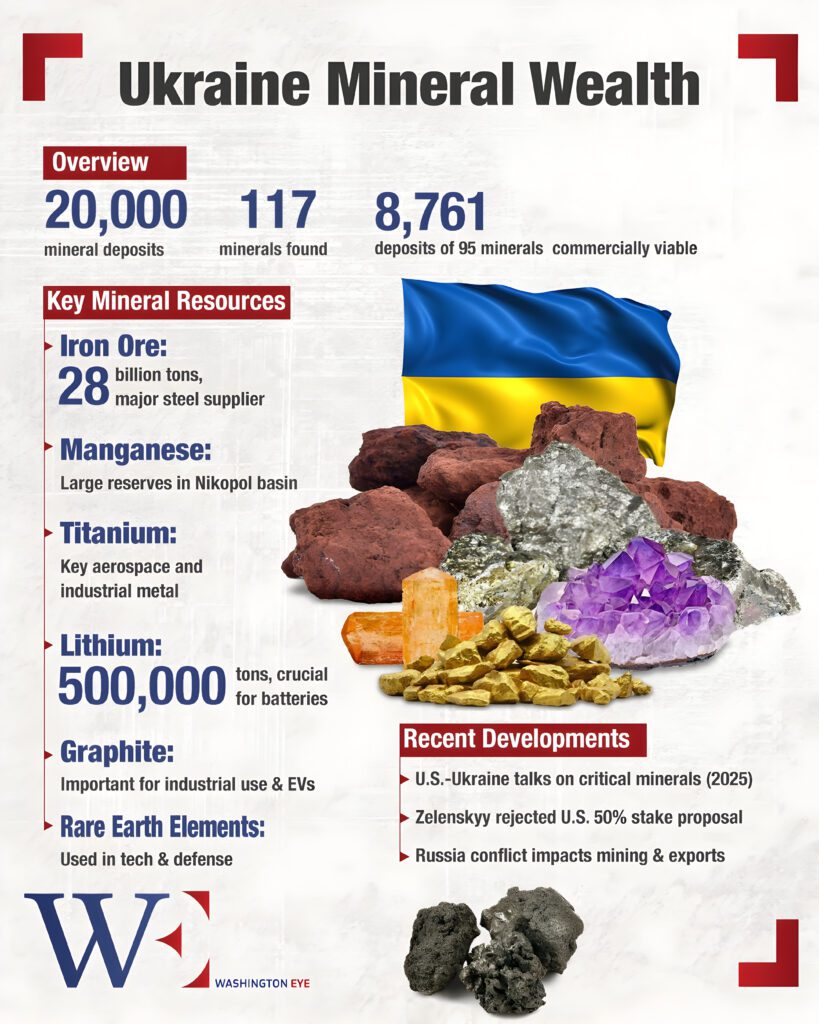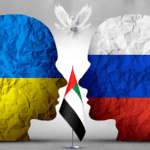In a dramatic show of defiance against growing international pressure, Ukraine has firmly rejected demands from the United States to surrender a substantial portion of its mineral wealth, which is vital to its economic future and geopolitical standing.
The decision, made in the wake of a high stakes meeting in Paris earlier this month, signals a critical juncture in the country’s ongoing struggle to balance its sovereignty with the complex demands of global powers. The meeting occurred on February 7, 2025, in Paris, under the auspices of the World Economic Forum, a platform where world leaders and policymakers discuss pressing global issues.
The key participants were Ukrainian President Volodymyr Zelensky, French President Emmanuel Macron, and other senior diplomats, economic advisors from European Union member states, and representatives from international financial institutions. The meeting’s main agenda was centered around the post-war economic recovery of Ukraine, which is still grappling with the aftermath of the ongoing conflict with Russia.
While the war-torn country has made some strides toward rebuilding, its economy remains heavily reliant on its vast reserves of natural resources, including coal, rare earth elements, and significant quantities of metals like titanium, uranium, and lithium. These resources have garnered significant global attention, particularly as the world faces mounting pressure to transition towards green energy and reduce reliance on fossil fuels.
The U.S., in particular, has been pushing for Ukraine to cede control of a significant portion of its mineral reserves, particularly those in the eastern Donbas region, which has been a hotspot of conflict during the war with Russia. Washington argues that by allowing foreign investment and control over these resources, Ukraine could speed up its recovery, stabilize its economy, and provide an attractive investment climate for the West.
However, the terms suggested by the U.S. have been contentious, with some proposing that Ukraine surrender up to 50% of its mineral wealth to multinational corporations, including American firms, in exchange for economic aid and reconstruction support.
Ukraine’s Defiant Stance
Ukrainian President Zelensky, whose country has already made significant concessions in terms of territorial control and military engagements, vehemently opposed these terms. In his address during the Paris meeting, Zelensky warned that giving up such a crucial portion of the country’s resources would amount to an infringement of Ukraine’s sovereignty and national dignity.
“We have already made immense sacrifices to preserve our independence and integrity. Our resources are the lifeblood of our economy, and we will not barter them away for promises of foreign aid,” Zelensky declared to the assembled diplomats and world leaders.
“Ukraine’s future lies in the hands of its people, not in the control of multinational corporations, no matter how powerful.” Zelensky’s strong words resonated with many of the European leaders in attendance.
French President Macron expressed his support for Ukraine’s sovereignty, stating that France would not back any deal that undermined Ukraine’s control over its natural resources.
“The future of Europe lies in the prosperity and independence of its nations. France stands firmly behind Ukraine in this matter,” Macron said, signaling a clear European stance against U.S. demands.
The Economic Stakes
The issue at hand is not just a question of sovereignty but one of survival for Ukraine’s economy. The country holds some of the richest untapped reserves of critical minerals, particularly in the Donbas region, which has long been a focal point of conflict.
These minerals, crucial for the production of high-tech goods and renewable energy technologies, have made Ukraine a prime target for both Western and Russian interests. Analysts warn that without proper management of these resources, Ukraine risks becoming further entangled in foreign influence, potentially losing control over its most valuable assets.
The idea of foreign companies, particularly from the U.S., taking control of significant portions of Ukraine’s mineral wealth has sparked outrage among many Ukrainians, who fear that such a deal would exacerbate corruption and inequality within the country. However, some experts argue that Ukraine could benefit from foreign investment in the short term.
Given the country’s fragile economic state, the influx of capital from Western countries, in exchange for access to resources, could provide the boost needed for reconstruction and long-term stability. Yet, this viewpoint has been overshadowed by concerns over national security and the possibility of Ukraine becoming too dependent on external powers.
International Implications
The decision to reject U.S. pressure has far-reaching implications for international relations, particularly between Ukraine and its Western allies. The U.S. has long been one of Ukraine’s strongest supporters, providing military aid, financial assistance, and diplomatic backing in the face of Russian aggression.
However, the dispute over mineral resources marks a new chapter in the relationship, with Ukraine asserting its autonomy in the face of powerful international forces. Some analysts predict that this defiance could lead to a reevaluation of U.S.-Ukraine relations, with the potential for friction as Ukraine seeks to maintain its independence while continuing to rely on Western support.
European countries, meanwhile, may be forced to choose between aligning with the U.S. or backing Ukraine’s right to control its resources without external interference.
As tensions surrounding Ukraine’s mineral wealth continue to mount, the outcome of this diplomatic showdown remains uncertain. What is clear, however, is that Ukraine’s decision to reject foreign demands for its resources will have profound consequences for its future, both economically and politically.
The country’s leaders face a delicate balancing act: maintaining their sovereignty and protecting their resources while navigating the complex demands of the international community.














